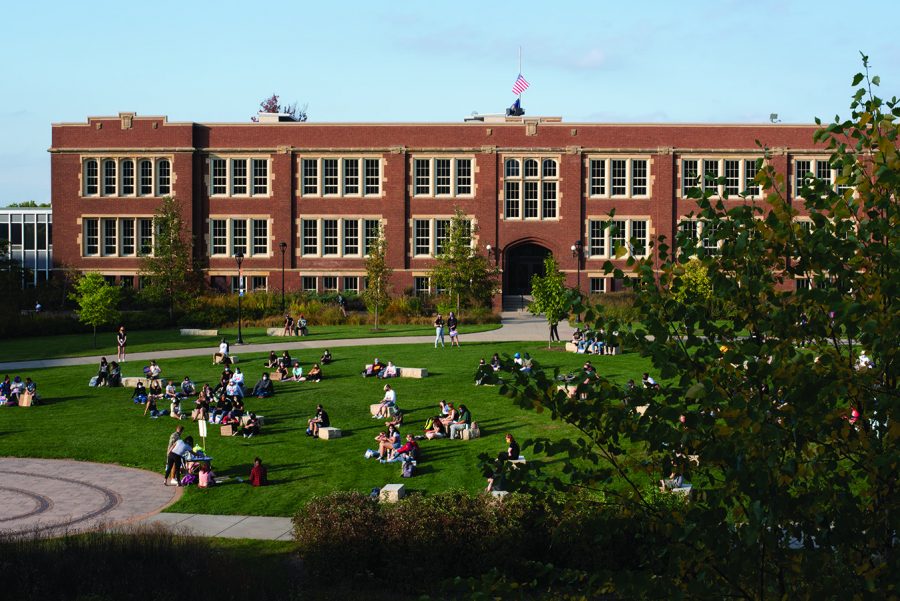The National Endowment for the Humanities gives grant to UW-Eau Claire
A grant for interdisciplinary humanities has been given to UW-Eau Claire Winter Heffernan
More stories from Winter Heffernan
Photo by Taylor Wilkinson
The National Endowment for the Humanities (NEH) is giving UW-Eau Claire a $150k humanities grant. According to Uwec.edu, this money will go towards an interdisciplinary field between the humanities and healthcare.
According to their webpage, the NEH is one of the largest funders of humanities programs in the United States. They give grants to institutions like museums, archives and libraries in addition to colleges.
Dr. Lousa Rice, UW-Eau Claire’s interim associate vice chancellor for academic affairs, applied and wrote the proposal for the grant.
“It’s a growing field,” Rice said. “One of the big goals of it is to think about students who are going to be future healthcare professionals. They can become more holistic in their thinking and think about the whole patient.”
Rice said this field looks into more aspects of a patient rather than just their diagnosis. This includes their cultures, backgrounds and belief systems. It is about learning how to treat a patient by looking at them as a whole.
According to Rice, Health Humanities also looks at inequity in healthcare. For example, in the Health Humanities class she taught this semester, her class went to The Bias Inside Us exhibit. They then wrote about how unconscious bias may have an impact on healthcare.
Julie Anderson, a biology professor at UW-Eau Claire, is involved with developing this new program. She said her perspective on the Health Humanities.
“They offer a historical perspective on healthcare, and help to develop the skills of observation, analysis, empathy, creativity, and self-reflection that are crucial for future healthcare,” Anderson said.
Because of this grant, students will be able to earn Health Humanities certificates. Rice said that they may look into creating Health Humanities majors and minors programs eventually.
Rice said that this grant is going to be put towards three things: curriculum, experiential learning and outreach.
In the area of curriculum, the money will be used to create new classes and train people to teach them. She said this may also include recordings of experts on a given topic, similar to a TED-talk.
Experiential learning has to do with student involvement. Rice said this will include research projects and internships.
“The certificate will also require completion of an internship, a learning experience abroad, and/or a collaborative research project,” Anderson said.
Anderson said this could be through outreach to local museums and galleries. It could also be through art collaboration with medical professionals and experts.
Finally, the outreach money will be used towards conference presentations, a website and potentially a publication.
Rice said that the success rate for applying last year was around 8%.
“We were the only ones who got comprehensive funding in the state. Milwaukee and Madison got some projects funded, but none of their comprehensive. It is really great that we got it in spite of the odds.” Rice said.
For more information on the NEH visit neh.gov.
Heffernan can be reached at hefferjs9199@uwec.edu.

